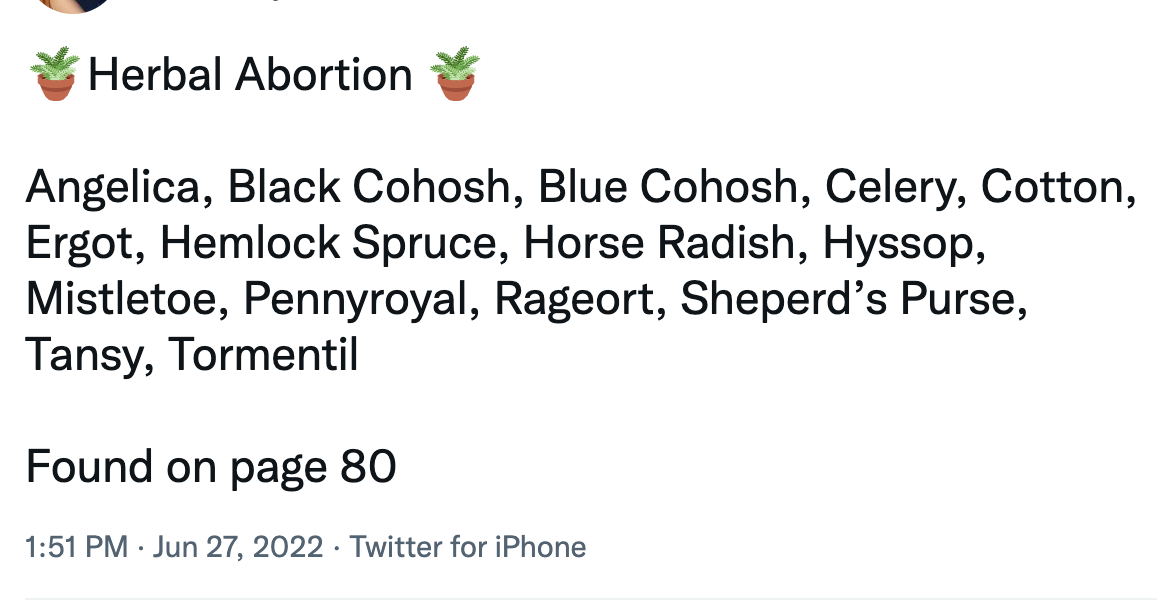Misinformation spreads about herbal remedies, medication abortion
Meedan recently released a new report detailing lies about abortion and reproductive care
(A Tweet that recommends abortion methods that aren’t approved by any respected medical organization)
Meedan, a nonprofit that empowers journalists among other groups with data collection, recently released a study about the spread of misinformation pertaining to reproductive care. Jenna Sherman, who wrote the report, spoke to Repro Rights Now about it.
“A few of the main reasons why we are worried that and believe this to be a big problem is because of how stigmatized these health topics are already,” Sherman said.
Because of that, more people seek information pertaining to birth, pregnancy, abortion and gender-affirming care online than they would in person. That makes them susceptible to being manipulated. It can affect their mental and physical health.
“We also know that anytime a claim or any type of narrative is repeated, it is more likely to be believed as true by the consumer of it,” Sherman said. “And also that when there's a large volume of information people are also less likely to be critical of it. And that is often the case.”
The 62-page report begins by delving into pregnancy and infant care. It dispels the belief that folic acid is bad for women. It also disputes the widespread belief that you can’t have a vaginal delivery after a C-Section procedure for previous children. Insofar as childcare, the report goes into what would qualify as a safe baby formula to use when nursing.
The second section deals with gender dysphoria. One misconception is that testosterone makes you aggressive. Another is that puberty blockers are dangerous.
One of the more timely research sections deals with abortion. Much of the misinformation spreading about that has to do with the medication abortion available to women as part of their decision to end a pregnancy. Antiabortion operatives can try to mislead women seeking care by spreading falsehoods about the dangers of the drug as well as trying to convince them that it’s reversible with some recommended method.
I was fascinated personally by the research dealing with the popularity of herbal remedies pertaining to abortion. I had read several texts that discussed how women in the 1800s and earlier terminated pregnancies. One of the things that happened at the time was newspaper advertisements claiming that natural remedies could serve as abortifacients. That history seems to be repeating itself, but these suggested methods now appear on social media posts instead of in classified advertising.
“There's concern about what the ripple effects of these claims could be, especially because they are so difficult to pinpoint and to study,” Sherman said. “So they're likely going under the radar. And the same is true for the other topics.”




